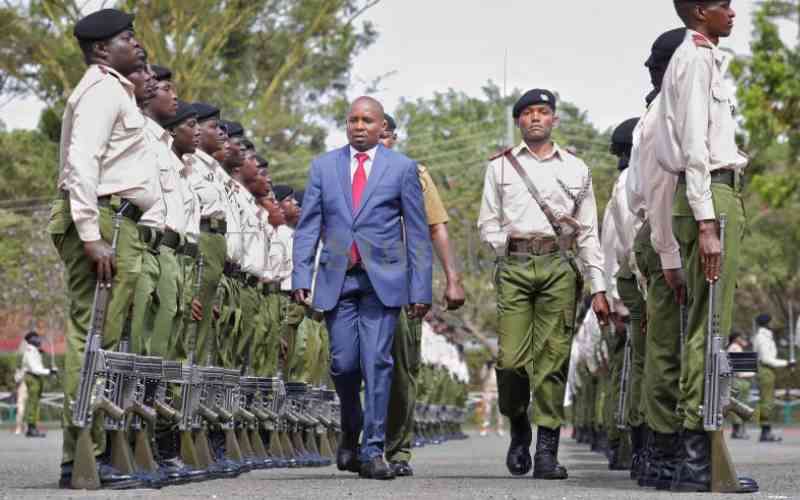×
The Standard e-Paper
Smart Minds Choose Us

The Ministry of Interior wants the Administration Police given back their traditional roles, citing a surge in crime.
Exclusive documents obtained by The Standard raise alarm over heightened security threats and sluggish responses to criminal activities after the merger of police units into one service.